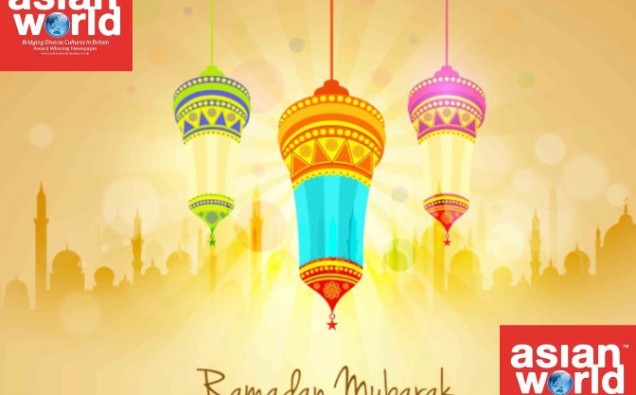Muslims all over the world are gearing up in anticipation as the holy month of Ramadan approaches.
Ramadan, the ninth month of the Islamic calendar, is a month of fasting and increased spiritual focus for Muslims. Muslims give up food and drink for thirty days from the hours between dawn and dusk, as appointed in the Quran by Allah (God).
They also perform extra acts of worship to reap the spiritual blessings of Ramadan and to become closer to God.
Since the Islamic calendar is based on the lunar cycle, its commencement date varies each year slightly. This year it is expected to begin on Tuesday 15th May, depending on the sighting of the first crescent moon.
It will continue for either 29 or 30 days, again relying on the sighting of the subsequent first crescent moon, predicted to take place on Thursday 14th June.
14th June is also the likely date for the festival known as Eid- ul- Fitr which traditionally rounds off the end of Ramadan as a day of eating, drinking and celebrating.
Many Islamic countries wait for official confirmation from the Saudi Supreme Court to signify the beginning of the month of fasting.
Countries that have trouble viewing the moon due to unfavourable visibility conditions rely on the closest neighbouring Islamic nation to announce the start of Ramadan.
This year the fasting duration is expected to start as early as 4.30 in the morning to as late as 9.30 at night, approximately 17 hours.
The reason behind the observation of fasting in Ramadan, also known by its Arabic name “Sawm” is because it fulfils the fourth “pillar” or criteria of Islam.
Many Muslims also say that fasting gives them a deeper appreciation for the struggle of those less fortunate and helps them to practice an attitude of gratitude.
Contrary to popular belief, Muslims do not go for the entire month without eating a single morsel of food or drinking any water. There are two specific meals which indicate the start of the fast and the end, “Suhoor” and “Iftar” respectively. Both meals are encouraged for Muslims to take.
During Suhoor, many Muslims fill up on fruits and plenty of water to keep them energised throughout the day, and traditionally break the fast with date fruits and Zamzam water (holy water from Mecca) at Iftar time. After this, Muslims are free to eat whatever meals and delicacies they have prepared.
It might seem bizarre to some, with the famous, “not even water?” question gasped by many non-Muslim friends and colleagues on first hearing about the custom, but many Muslims consider the approach of the month as a cause for celebration. This is because Ramadan is an opportunity for Muslims to increase their love and closeness to Allah (God) by practising discipline, altruism, austerity, God consciousness, purity of character and performing extra acts of worship such as reading the whole Quran and extra prayers.
There is also a shared sense of community, with many Muslims making concerted efforts to gather together to break their fast, at each other’s houses or restaurants. Local mosques such as Birmingham Central Mosque also host Iftar dinners, so that those less fortunate can enjoy a good meal with others to break their fast. Religious orientation is no object: most mosques welcome both Muslims and non-Muslims alike for the unifying experience of Iftar. @MosqueIftar is an account on Twitter that dedicates its page to providing information and sharing photos of Iftar dinners taking place at mosques across Britain.
Aside from its spiritual benefits, Ramadan also has an impressive list of immense health advantages, both physiological and psychological. A few include:
Weight loss – some people can benefit from the decreased intake of calories, provided they do not indulge in high-fat and high-sugar foods at the time of breaking the fast – which takes a lot of willpower!
Low blood sugar – your body uses up stored glucose when you fast which decreases your blood sugar levels, beneficial for people with non-insulin diabetes, obesity and hypertension.
Low sodium levels – The many hours of fasting also mean that you will consume less sodium overall.
Learning healthy habits – Ramadan is a good time to control oneself when it comes to replacing unhealthy eating habits with healthy ones. The thirty days of fasting act as a rigorous training scheme that can help one implement habits to continue even after Ramadan.
Scientifically speaking, there have been a significant number of studies and research to examine and support the benefits of fasting, also known as Calorie Restriction (CR).
Some studies have found that fasting is linked with living longer. Calorific restriction reduces the production of particular hormones and proteins which lead to inflammation and degenerative diseases such as heart disease and cancer.
Fasting has also been proven by neuroscientists to reduce chances of developing neurodegenerative diseases such as Parkinson’s and Alzheimer’s.
While the benefits of fasting are vast both spiritually and physically, it can be a taxing and draining process for some people. Therefore, there are specific groups of people who are exempt from fasting:
Pregnant women
The elderly
The severely mentally ill
People with severe physical illnesses
Prepubescent children
If one is unable to fast, they must make up for the fasts they have missed if or when they are mentally and physically able. They are also required to feed a disadvantaged person in need for each




















